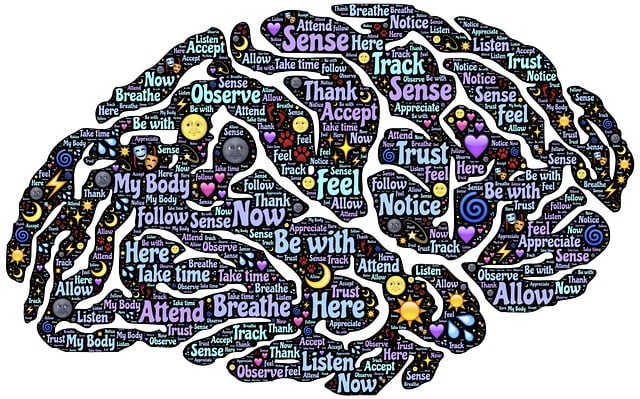Englewood EMDR Certified Therapy offers a comprehensive, evidence-based approach to substance abuse treatment by addressing root causes like hidden trauma and mental health issues. Utilizing techniques such as Eye Movement Desensitization and Reprocessing (EMDR), Mental Wellness Journaling, and emotional regulation skills, this holistic program empowers individuals to regain control over their thoughts and behaviors, reduce substance abuse, and promote long-term mental wellness. By integrating professional treatment with lifestyle changes, community support, and inner strength development, Englewood EMDR Certified Therapy provides a transformative path to healing and a more fulfilling life.
Substance abuse poses significant risks to individuals and communities, with long-lasting impacts on physical and mental health. This article explores comprehensive risk reduction strategies, focusing on evidence-based approaches to combat substance abuse effectively. We delve into understanding the nature of addiction, highlighting the transformative power of Englewood EMDR Certified Therapy. Additionally, we examine lifestyle changes, support systems, and continuous care as vital components in mitigating risks and fostering recovery.
- Understanding Substance Abuse and Its Risks
- The Role of Englewood EMDR Certified Therapy
- Lifestyle Changes for Mitigating Risk
- Support Systems and Continuous Care
Understanding Substance Abuse and Its Risks

Substance abuse is a complex issue that can have severe consequences on an individual’s physical and mental health, relationships, and overall well-being. It’s crucial to understand that this behavior often arises from underlying factors such as stress, trauma, or mental health disorders. Englewood EMDR Certified Therapy has emerged as a powerful tool in addressing these root causes. Eye Movement Desensitization and Reprocessing (EMDR) is a therapeutic approach that helps individuals process traumatic memories and negative beliefs, reducing the power they hold over one’s thoughts and behaviors.
By integrating EMDR with other evidence-based practices like Mental Wellness Journaling Exercise Guidance, communication strategies, and empathy building techniques, individuals can gain insights into their triggers and develop healthier coping mechanisms. These comprehensive risk reduction strategies not only help in managing substance abuse but also foster a deeper sense of self-awareness and mental wellness.
The Role of Englewood EMDR Certified Therapy

Englewood EMDR Certified Therapy offers a powerful tool for individuals seeking to overcome substance abuse and its underlying causes. EMDR (Eye Movement Desensitization and Reprocessing) is a therapeutic approach that has shown significant success in treating post-traumatic stress disorder (PTSD), which is often linked to addictive behaviors. This therapy helps clients process traumatic memories and associated emotions, reducing their impact and intensity over time.
By combining eye movements or other bilateral stimulation techniques with guided memory recall, Englewood EMDR Certified Therapists facilitate the brain’s natural healing process. This method allows individuals to reframe negative beliefs and experiences, promoting healthier coping mechanisms. Additionally, the therapy focuses on emotional regulation, a key aspect of substance abuse recovery, by teaching clients skills to manage intense emotions and build resilience. Through this holistic approach, Englewood EMDR Certified Therapy empowers individuals to take control of their mental wellness, fostering long-term recovery and enhancing overall life satisfaction.
Lifestyle Changes for Mitigating Risk

Englewood EMDR Certified Therapy offers a powerful tool for individuals looking to turn their lives around and reduce the risk of substance abuse. Beyond professional treatment, lifestyle changes play a crucial role in mitigating risk. This involves adopting healthier habits such as regular exercise, balanced nutrition, and adequate sleep—all known to support mental well-being.
Community outreach programs and burnout prevention strategies for healthcare providers can also contribute to an individual’s overall resilience. By fostering connections and providing additional support systems, these initiatives can help prevent relapse. Moreover, developing inner strength through mindfulness practices, therapy, and personal growth opportunities equips individuals with the tools to navigate challenges without turning to substances.
Support Systems and Continuous Care

Substance abuse poses significant risks, but understanding and implementing effective strategies can significantly reduce these dangers. From addressing the root causes through Englewood EMDR Certified Therapy to adopting healthier lifestyles and fostering strong support systems, each component plays a vital role in mitigating harm. By combining these risk reduction techniques, individuals can embark on a path of recovery and embrace a brighter, more hopeful future free from substance abuse’s grasp.









